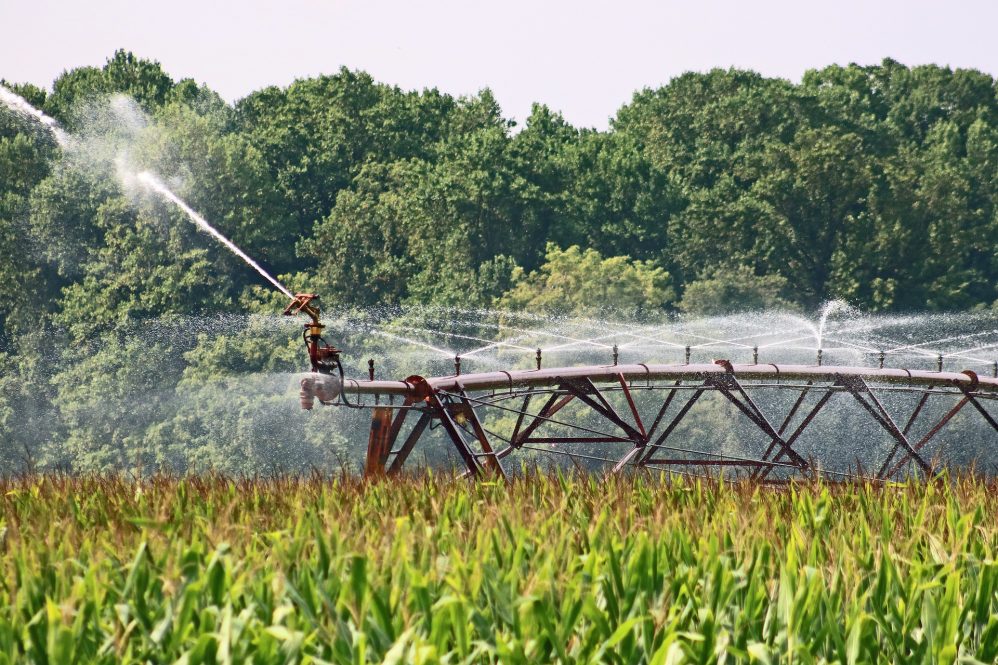High-profile food recalls due to outbreaks of diseases like Salmonella shed light on a persistent problem for agriculture: contaminated irrigation water.
The water farmers use for crop irrigation is often recycled wastewater. This environmentally friendly practice reduces water demand and recycles nutrients, which promotes soil health and prevents pollutants from entering our waterways. However, this practice carries a significant health risk. Not all water is equally clean, and existing disinfection practices don’t catch all waterborne pathogens.
Yangchao Luo, associate professor of Nutritional Sciences in the College of Agriculture, Health, and Natural Resources, received a $200,000 grant from the U.S. Department of Agriculture’s National Institute of Food and Agriculture to create biopolymer beads to clean wastewater so it can safely be used for agricultural irrigation.
People have been using sand, to catch dirt particles, and chlorine, as a disinfectant, as a proven method of eliminating waterborne disease from drinking water for more than a century.
Recently, there have been unexpectedly high rates of waterborne diseases in the U.S. These diseases are caused by parasites such as Cryptosporidium, which can cause diarrhea and dehydration, legionella and severe respiratory infections, and Salmonella.
Many of these infections are associated with contaminated agricultural irrigation water. If there are contaminants in the irrigation water, they make their way into the plants people and animals eat. This problem highlights how traditional water treatment processes are falling short of protecting consumers.
Through this grant, Luo will address this challenge with a next-generation engineering solution that takes advantage of advances in biopolymer research. He will develop a novel filtration device using functional biopolymer hydrogel beads to remove chemical and biological pollutants from wastewater. Luo is collaborating with Jie He, associate professor of chemistry and Co-PI on this project.
Biopolymers are naturally occurring polymers produced by the cells of living organisms. Stringing these polymers together creates highly porous hydrogels. These biopolymer beads can disinfect water without creating dangerous chemical byproducts that traditional methods, like chlorine disinfection, do.
These hydrogels have been shown to effectively remove chemical contaminants such as dyes, heavy metals, and organic matter from contaminated water. The beads have nanosized pores that absorb physical contaminants when they come into contact. Magnetizing the beads allows them to also capture metals.
Chitosan, which Luo will use, is the biopolymer derived from chitin found in crustacean’s cells. Chitosan has naturally occurring antimicrobial properties, making it a perfect candidate for water treatment devices.
Luo and He will experiment with changing the surface properties of the chitosan beads to find the optimal porosity for the kinds of contaminants found in wastewater bound for use as irrigation water.
They will endow these beads with superior antimicrobial properties that will allow them to kill off pathogens in the wastewater. The antimicrobial potency is enabled by chemical modification and engineering approaches to induce strong reactions with negatively charged microbial membranes.
Through this project, the researchers will develop a functional prototype of this device. The device will be affordable and biodegradable, making it an attractive, efficient, and sustainable option for the future of water treatment.
USDA NIFA Award No. 2021-67022-34415
Follow UConn CAHNR on social media.



